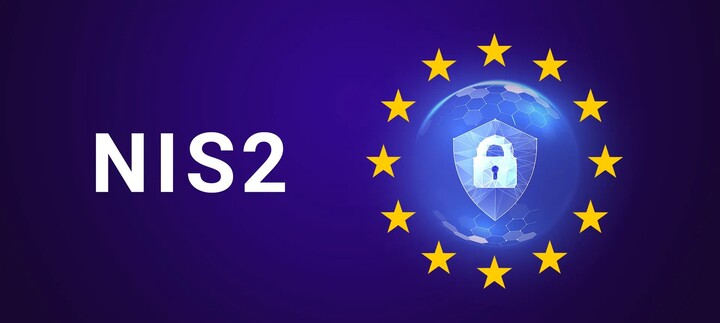What is NIS2?
The Network and Information Security (NIS) Directive, which was introduced by the EU in 2016, with a 2024 deadline, established stringent cybersecurity standards for businesses considered important, or critical infrastructure. The objective was to fortify security prerequisites through the implementation of a risk management strategy, delineating fundamental cybersecurity protocols that entities are anticipated to adhere to.
By classifying more businesses as important and placing stronger security requirements on organizations that operate in these sectors, NIS2 expands the scope of this regulation.
Who does NIS2 apply to?
Any corporation that conducts business in the EU and offers what are regarded as vital services—a service whose interruption could have disastrous repercussions for the nation or society—is subject to NIS2. Energy providers, wastewater and drinking water treatment facilities, banks and financial market infrastructures, healthcare facilities, digital infrastructure, Internet service providers, public administration, transportation, and industries that manufacture important household items or food are examples of essential services. It is estimated that the law will impact 160,000 businesses throughout Europe, including non-EU corporations providing vital or important services to EU members.
New rules:
-
Risk analysis and information system security policies
Organizations must conduct thorough risk analyses and develop robust information system security policies to address identified risks adequately.
-
Incident prevention, detection, and response
Entities are required to implement measures to prevent, detect, and respond to cybersecurity incidents effectively. This involves proactive measures to mitigate risks and detect potential threats, as well as establishing response protocols to minimize the impact of incidents.
-
Business continuity and crisis management
NIS2 mandates that organizations establish and maintain business continuity plans and crisis management protocols to ensure the resilience of critical services in the event of a cybersecurity incident or crisis.
-
Supply chain security
Organizations are obligated to assess and ensure the security of their supply chains, including third-party vendors and suppliers. This involves implementing measures to mitigate risks associated with third-party dependencies and ensuring the security of supply chain processes and systems.
-
Effective use of cryptography
Entities must employ effective cryptographic measures to safeguard sensitive information and communications against unauthorized access or interception.
-
Policies to assess the effectiveness of the organization’s cybersecurity risk management
NIS2 requires organizations to develop and implement policies and procedures to assess the effectiveness of their cybersecurity risk management practices continually.
-
Vulnerability disclosure
Entities are encouraged to establish vulnerability disclosure programs to allow external parties to report security vulnerabilities in their systems or services responsibly.
-
A new approach to incident reporting
NIS2 introduces a new framework for incident reporting, requiring organizations to report significant cybersecurity incidents to relevant authorities promptly.
-
Collaboration
The directive emphasizes collaboration and information sharing among stakeholders to enhance the overall cybersecurity posture and resilience of critical infrastructure and services.
How do we prepare for NIS2?
- First and foremost, we are proactively building critical relationships within the cybersecurity industry. By fostering better information sharing within our network, we enhance our ability to anticipate and mitigate cybersecurity threats.
- We recognize the importance of our supply chain in ensuring overall cybersecurity resilience. Thus, we are diligently assessing all links within our network and ensuring that each entity maintains strong cybersecurity measures.
- Furthermore, we are focused on continuously improving our organization's cybersecurity resilience. This involves addressing the seven areas identified by the EU, including risk analysis, incident prevention, detection, and response, and supply chain security. By proactively addressing these areas now, we avoid last-minute scrambles and ensure compliance well before the 2024 deadline.
While compliance with regulatory mandates is non-negotiable, forward-thinking businesses recognize the NIS2 Directive as more than a regulatory burden—it presents an opportunity for growth and differentiation.
As a software development company, embracing the principles embedded within the NIS2 Directive aligns with our commitment to delivering secure and resilient digital solutions. By integrating cybersecurity best practices into our development processes, we not only ensure compliance but also instill trust and confidence in our clientele.









